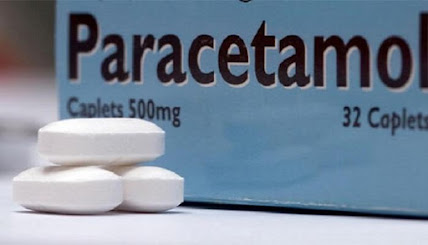Coronavirus and paracetamol: are you able to take paracetamol for coronavirus?
CORONAVIRUS has put countries on lockdown as cases still grow around the world. except for those infected, are you able to take paracetamol for coronavirus?
Coronavirus cases are growing daily, and within the UK now unprecedented measures are in situ to stop further spread of the virus. Britons are being advised to undertake social distancing, avoiding social situations, large gatherings, and unnecessary travel.
Across the united kingdom, there are 2,626 cases of coronavirus - official name COVID-19 - and 103 people have died from the virus.
To safeguard vulnerable groups, Prime Minister Boris Johnson called on the united kingdom to figure from home where possible, practice social distancing and self-isolate if any member of the household displays symptoms.
Coronavirus causes a dry cough, shortness of breath and fever - however, some people can have worse symptoms than others.
In extreme cases, COVID-19 can cause pneumonia and even organ failure.
For the lesser symptoms - coughing and fever - the govt ask sufferers to stay reception, and not seek advice unless your condition worsens. However, if you are feeling yourself getting worse, then contact NHS 111.
Can you take paracetamol for coronavirus?
For those managing their symptoms reception, the NHS advises to "drink much water and take everyday painkillers, like paracetamol to assist together with your symptoms."
Paracetamol is employed to alleviate pain and reduce fever, so can help alleviate some symptoms.
Chief scientific adviser Sir Patrick Vallance suggested on Tuesday people shouldn't take ibuprofen.
French health minister Olivier Veran has suggested anti-inflammatory drugs could worsen the infection.
Sir Patrick told MPs: "The ibuprofen example - it's going to or might not be right, I do not know, but the sensible thing to try to would be to mention don't take it at the instant, take something else - paracetamol or something."
As yet there's no cure for coronavirus, only managing the symptoms which arise.
If you're staying reception as you're feeling unwell, the NHS advises
try to keep a minimum of 2 meters (3 steps) from people in your home, particularly people over 70, or those with long-term health conditions
ask friends, family and delivery services to deliver things like food shopping and medicines but leave them outside
sleep alone, if possible
regularly wash your hands with soap and warm water for a minimum of 20 seconds
drink much water and take everyday painkillers, like paracetamol to assist together with your symptoms.
Due to increased demand, the NHS advises only calling 111 if you can't receive help online.
Do not attend a hospital, GP surgery or walk-in-center as this might spread the virus further.
If you would like further advice on managing symptoms to check the NHS website here.
Is there a coronavirus vaccine?
As yet there's no vaccine for coronavirus, however, UK scientists are performing on a coronavirus vaccine aimed toward preventing outbreaks almost like the COVID-19 pandemic.
Researchers from the University of Plymouth have made progress in developing vaccines designed to stop infections from jumping from animals to humans.
Researchers at The Vaccine Group (TVG), a university spinout company, are now looking to make a vaccine to stop future human coronaviruses that have spread from animals.
Coronaviruses are zoonotic, which suggests they're carried in animals and may transfer across to humans.
Dr Michael Jarvis, TVG's chief scientific officer, said: "As COVID-19 has shown, the spillover of disease from animals to humans can have a really high social, economic and commercial cost globally.
He added the animal species involved within the recent emergence remains unclear, and a vaccine like this might be vital for control of COVID-19 also as other emerging coronaviruses.





0 Comments